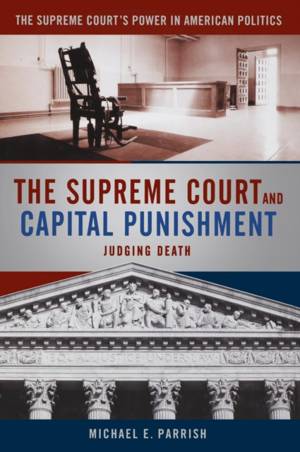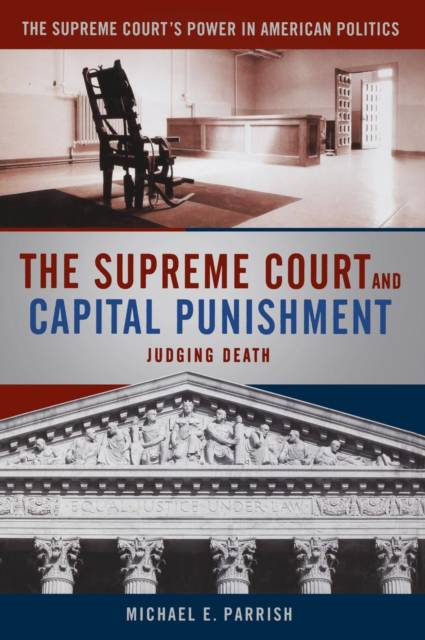
Vous voulez être sûr que vos cadeaux seront sous le sapin de Noël à temps? Nos magasins vous accueillent à bras ouverts. La plupart de nos magasins sont ouverts également les dimanches, vous pouvez vérifier les heures d'ouvertures sur notre site.
- Retrait gratuit dans votre magasin Club
- 7.000.000 titres dans notre catalogue
- Payer en toute sécurité
- Toujours un magasin près de chez vous
Vous voulez être sûr que vos cadeaux seront sous le sapin de Noël à temps? Nos magasins vous accueillent à bras ouverts. La plupart de nos magasins sont ouverts également les dimanches, vous pouvez vérifier les heures d'ouvertures sur notre site.
- Retrait gratuit dans votre magasin Club
- 7.000.0000 titres dans notre catalogue
- Payer en toute sécurité
- Toujours un magasin près de chez vous
Description
From the late nineteenth century to the present, decisions by the Supreme Court have played a significant role in how American governments, especially at the state level, have carried out the death penalty. With more than 3,400 prisoners, including 118 foreign nationals, now on death rows, the Court&BAD: rsquo;s role is not likely to diminish in this area over the next several decades, barring a major shift in state laws and public opinion. Supreme Court and Capital Punishment, the second installment in CQ Press′s &BAD: ldquo;The Supreme Court′s Power in American Government&BAD: rdquo; series, explores how Supreme Court rulings over its history have shaped and reshaped the rules under which Americans have been tried, convicted, sentenced and put to death for capital offenses. Through judicial decisions and other primary documents, this reference explores the impact of these rulings upon the behavior of legislators, judges, prosecutors, defense attorneys and defendants. Considerable emphasis is placed upon the twentieth century, especially the period since the 1972 Furman v. Georgia case. Since Furman, few areas of constitutional doctrine have undergone more abrupt changes than Court-mandated standards for administering capital punishment. A second principal theme of this volume is an examination of the impact of race upon the long evolution of the Court&BAD: rsquo;s death penalty jurisprudence. As defendants and victims, African-Americans on trial for their lives in Southern courts became the central figures in the design and redesign of capital punishment in the twentieth century. The Court&BAD: rsquo;s &BAD: ldquo;effective counsel&BAD: rdquo; decisions have played a major role in how states shape their public defender systems and how they respond to the claims of impoverished defendants charged with capital crimes. The documents section of the volume includes: Selections from key Supreme Court decisions, both majority opinions and dissentsAmici briefs by a variety of organizations selections from proponents and opponents of capital punishment legislative debates on proposed moratoriums on capital punishment that took place in Nebraska, Vermont and Illinois during the past few years Congressional debate on the Racial Justice Act Statistical studies such as that conducted by Iowa law professor David BaldusVivid early newspaper accounts of executions and trials important topics covered in Supreme Court and Capital Punishment include the following: Judicial philosophies on the death penalty throughout the history of the CourtDebate over the execution of juveniles, the mentally retarded, and the insane race and capital punishment Constitutionality of methods of execution changing public opinion and its impact on capital punishment
Spécifications
Parties prenantes
- Auteur(s) :
- Editeur:
Contenu
- Nombre de pages :
- 447
- Langue:
- Anglais
- Collection :
Caractéristiques
- EAN:
- 9780872897731
- Date de parution :
- 01-09-09
- Format:
- Livre relié
- Format numérique:
- Ongenaaid / garenloos gebonden
- Dimensions :
- 184 mm x 255 mm
- Poids :
- 1052 g







